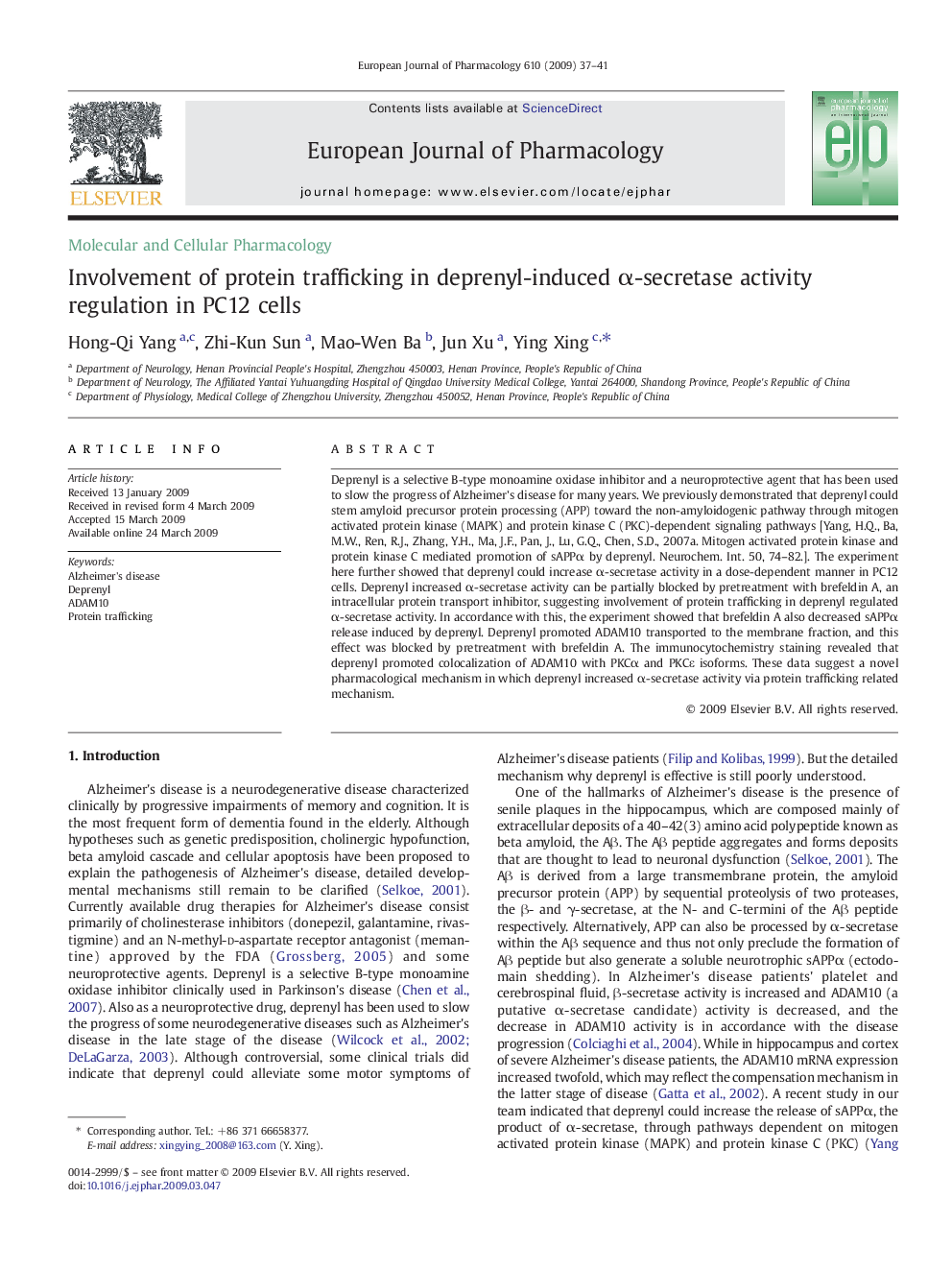| Article ID | Journal | Published Year | Pages | File Type |
|---|---|---|---|---|
| 2534330 | European Journal of Pharmacology | 2009 | 5 Pages |
Deprenyl is a selective B-type monoamine oxidase inhibitor and a neuroprotective agent that has been used to slow the progress of Alzheimer's disease for many years. We previously demonstrated that deprenyl could stem amyloid precursor protein processing (APP) toward the non-amyloidogenic pathway through mitogen activated protein kinase (MAPK) and protein kinase C (PKC)-dependent signaling pathways [Yang, H.Q., Ba, M.W., Ren, R.J., Zhang, Y.H., Ma, J.F., Pan, J., Lu, G.Q., Chen, S.D., 2007a. Mitogen activated protein kinase and protein kinase C mediated promotion of sAPPα by deprenyl. Neurochem. Int. 50, 74–82.]. The experiment here further showed that deprenyl could increase α-secretase activity in a dose-dependent manner in PC12 cells. Deprenyl increased α-secretase activity can be partially blocked by pretreatment with brefeldin A, an intracellular protein transport inhibitor, suggesting involvement of protein trafficking in deprenyl regulated α-secretase activity. In accordance with this, the experiment showed that brefeldin A also decreased sAPPα release induced by deprenyl. Deprenyl promoted ADAM10 transported to the membrane fraction, and this effect was blocked by pretreatment with brefeldin A. The immunocytochemistry staining revealed that deprenyl promoted colocalization of ADAM10 with PKCα and PKCε isoforms. These data suggest a novel pharmacological mechanism in which deprenyl increased α-secretase activity via protein trafficking related mechanism.
